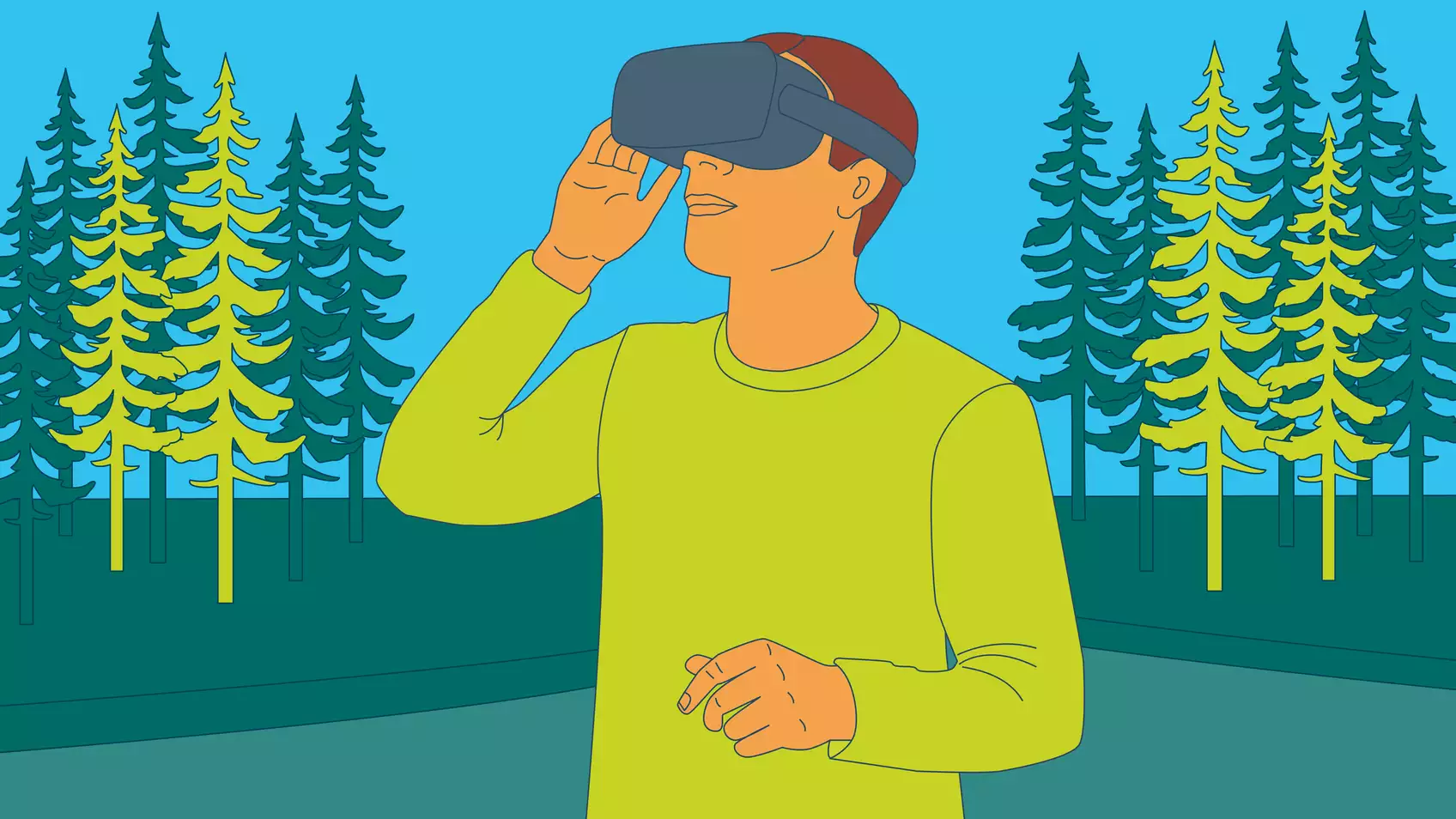New research shows that immersing yourself in nature through virtual reality can significantly improve your mental wellbeing – especially when the experience engages multiple senses at once.
Researchers from the Max Planck Institute for Human Development and University Medical Center Hamburg-Eppendorf found that virtual forest bathing creates real emotional benefits, offering hope for people with limited access to natural environments.
The study involved more than 130 participants who first underwent a stress-inducing experience before exploring a virtual forest through VR headsets. What makes this research groundbreaking is its focus on multi-sensory exposure – combining sight, sound, and even scent.
“The combination of all three sensory stimuli led to a significantly greater improvement in mood and a stronger feeling of connection with nature compared to when individual sensory stimuli were presented,” explains Leonie Ascone, lead author of the study published in the Journal of Environmental Psychology.
For the experiment, researchers created a high-quality 360° VR video in Europe’s largest Douglas fir forest, complete with authentic forest sounds and the scent of Douglas fir essential oils. Participants experienced the virtual environment in different ways – some received the full sensory experience while others only experienced one sense at a time.
The benefits weren’t just emotional. Participants also showed limited improvements in working memory – our ability to temporarily store and process information. This aligns with existing scientific theories about how nature affects our brains.
Similar Posts
According to Attention Restoration Theory, natural environments allow our minds to recover from mental fatigue by gently capturing our attention without requiring intense focus. Similarly, Stress Reduction Theory suggests nature triggers positive emotional states and lowers physiological stress responses. The Biophilia Hypothesis proposes humans have an innate connection to nature that explains our positive responses even to virtual natural settings.
The practical applications could be far-reaching. “Especially in places with limited access to nature – such as clinics, waiting areas or urban interiors – multisensory VR applications or targeted nature staging could support mental wellbeing,” says Simone Kühn, director of the Center for Environmental Neuroscience and head of the study.
Previous research by Kühn’s team found that simply watching nature videos can help patients perceive physical pain as less intense, highlighting nature’s therapeutic potential even through digital means.
While the researchers emphasize that virtual experiences don’t fully replace real nature, this technology opens new possibilities for bringing nature’s benefits to those who can’t easily access it – including hospital patients, urban dwellers, and people with mobility limitations.
The researchers caution that more studies with larger samples are needed to confirm these results and better understand exactly how virtual nature experiences restore our mental faculties. However, the initial findings suggest that even digitally created natural environments can offer meaningful psychological benefits when designed to engage multiple senses.
As technology advances, virtual forest bathing could become an important tool for improving mental health in our increasingly urban world.



















